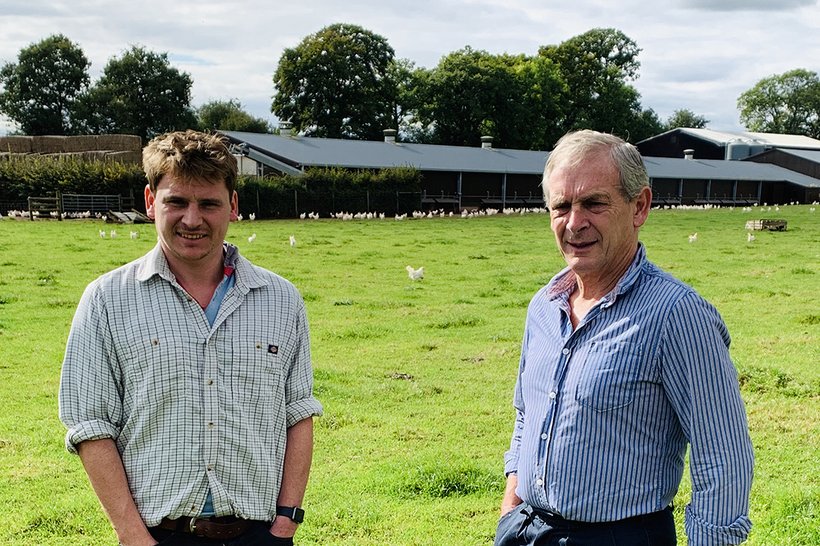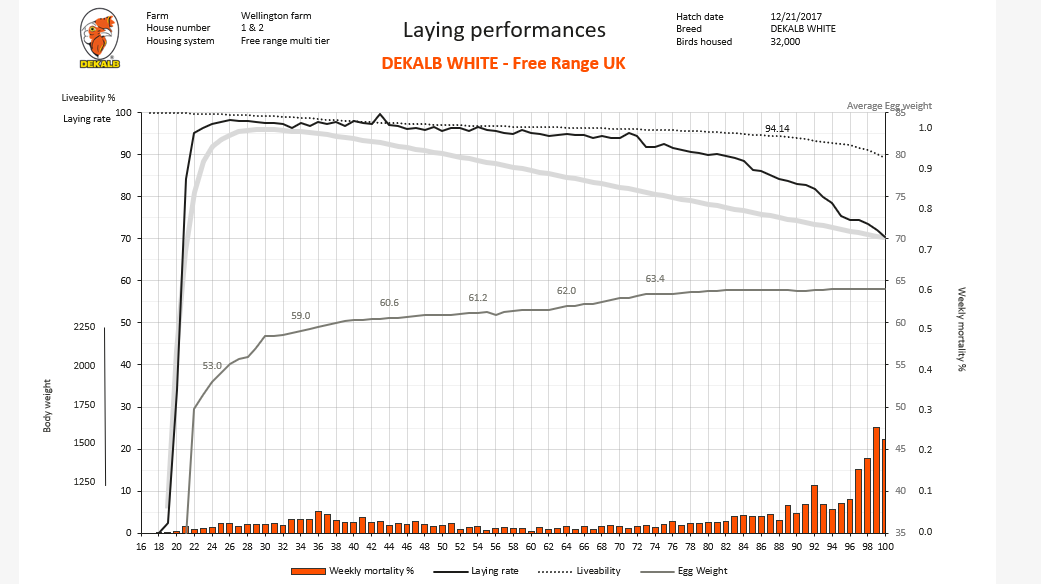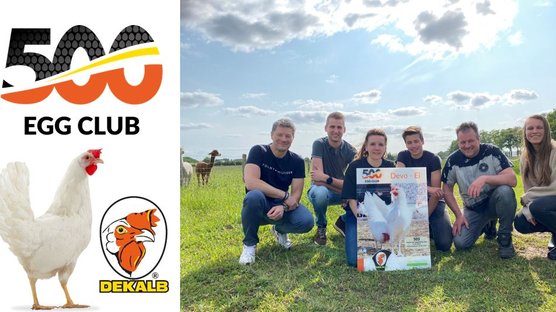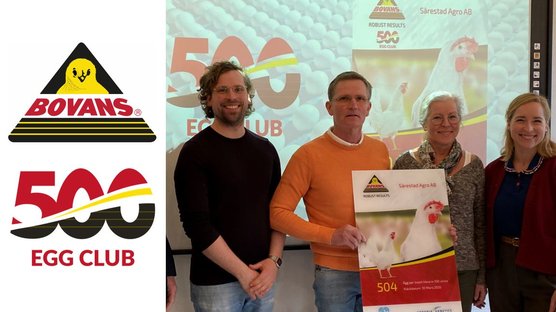
Published on April 9, 2020
Achieving 500 Eggs in 100 Weeks in Free Range conditions in the United Kingdom
A flock of 32.000 Dekalb White birds reached 500.1 eggs at the age of 100 weeks at Wellington Farm in Bishops Frome (UK). Despite the harsh climatic conditions, e.g. it is raining more than 50% of the days, these Dekalb birds have marked an absolute landmark in the UK!
Wellington Farm in Bishops Frome is run by Nick and Allan Panniers and they received the Hendrix Genetics award for managing the first commercial UK flock of free- range Dekalb White birds, to produce 500 eggs per bird, over a 100-week cycle.

A team effort
Congratulating Nick Panniers, Jeroen Visscher, director of R&D for the laying hen business unit of Hendrix Genetics, said “It is fantastic to see the results of our breeding programme translating into commercial success”. Nick Panniers replied that it was a team effort and that “it was his really his father Allan who should be receiving the award”
He went on to say “White birds perform extremely well in free-range and it is important to note that the longer cycles, feed efficiency and behavioural traits combine to make white birds the low the carbon footprint and high welfare option”
Invest in poultry farming
The Panniers Family were running a mixed arable farm at Bishops Frome, with the necessary land available and looking for a secondary income stream they opted to invest in poultry farming. The first flock of 16,000 brown layers was housed in a brand-new, multitier house in 2010 - a system Nick believes is well built and best reflects the bird’s natural behaviour and the regular muck supply comes in handy for the arable farm. New houses were built in 2015 and 2018 bringing the total capacity to 64,000 birds across 4 houses of 16,000.
![IMG_1873[1].jpeg](https://d1lg8auwtggj9x.cloudfront.net/images/IMG_18731.0de4afd1.fill-1220x684-c100.jpg)
Working with White birds in a Brown market
In 2018 Nick and Allan were offered a contract to supply white eggs by their egg packer. Attracted by the challenge, they were also wary of a step into the unknown - changing from a high value to a lower value proposition, and from brown birds to white. They met with Penny Humphrey of Joice and Hill to discuss introducing Dekalb Whites to fulfil the new contract. Nick and Allan then visited Holland, with Joice and Hill, to look at the way Dekalb Whites were being managed on Dutch Farms. Suitably reassured, he went on to order the birds from the Peterborough hatchery. They now rely exclusively on Dekalb White and as their recent achievement proves, they are clearly delighted with the decision.
“The experience of working with white birds is very different to a brown bird” Nick says, “They are individuals, intelligent and they pick things up quickly, they like to be by themselves. Because they are initially flighty it can make weighing and stock management a challenge, but we have learnt to overcome this by weighing before” lights on. The extra effort is worth it, the birds respond well to good training and floor eggs are low”
Keep it simple
The management philosophy at Wellington Farm is “Keep it simple” .Wherever possible, the birds are not disturbed in the afternoon and a consistent early morning routine is quickly established and meticulously maintained with the birds walked every morning, at the same time, to check for feed, water and any changes to behaviour. Nick says “I am convinced the best input is rewarded with the best output. We have the best breed, the best farm, the best team, the best rearer and the best support”. The Panniers mill their own feed and believe that diet changes with added fibre, Lucerne bails, and oats in ration have improved feather cover. Meanwhile they are working on controlling egg size and quality at end of lay even further by experimenting with dimmer lighting regimes.



